How to Recover Files From a Formatted Hard Drive
How to effectively recover files when a hard drive is accidentally formatted? This article will explore several feasible methods, including the use of professional data recovery software and key steps, to help you maximize the recovery of lost important data.
Formatting a hard drive can often feel like an irreversible action, leading many to believe that all their files are lost forever. Whether it’s a result of a system crash, a mistake, or an attempt to resolve performance issues, the thought of losing important documents, cherished photos, or crucial data can be overwhelming.
But don’t panic just yet! Despite the common misconception, files on a formatted hard drive are not immediately gone for good. In fact, with the right tools and methods, it’s often possible to recover them. In this article, we’ll guide you through the process of recovering files from a formatted hard drive, ensuring that you can retrieve your valuable data even after a formatting mishap.
Can I Recover File from a Formatted Hard Drive?
Yes, you can recover files from a formatted hard drive. When you format a hard drive, the operating system deletes the file system structure that keeps track of where data is stored on the disk, but the actual data is not necessarily deleted immediately.
How to Recover Files From a Formatted Hard Drive
Recovering files deleted from a formatted hard drive may seem like an impossible task, but in reality, with the right methods and tools, you have a good chance of getting your lost data back. When you accidentally format a hard drive, the operating system deletes the index in the file system, but the actual data usually still exists on the disk. Here are a few possible ways to recover these files.
Method 1: Recover Files Using Glary File Recovery
Glary File Recovery is a professional data recovery software. Whether the data loss is caused by accidental deletion, formatting or system crash, Glary File Recovery can help users recover these important data.
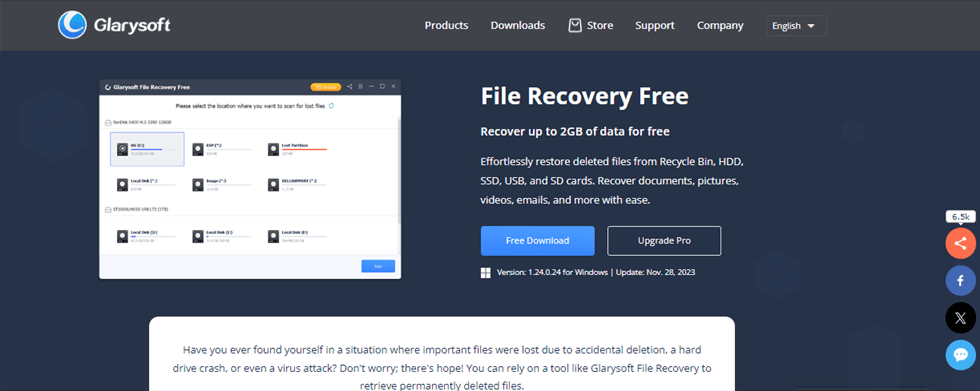
Glarysoft File Recovery
Main features:
- Support multiple file systems: Able to handle data recovery of FAT, NTFS and NTFS + EFS file systems.
- Extensive file recovery: Supports file recovery from various storage media such as hard disk, USB flash drive, memory card, etc.
- Easy to use: User-friendly interface, simple operation, easy to use without technical background.
- Deep Scan: Provides deep scan function, which can search and recover deleted or lost files more deeply.
- File preview: You can preview the file before recovery to ensure that the correct file is recovered.
How to recover files using Glary File Recovery:
Step 1. Download and install Glary File Recovery and follow the installation instructions to set it up on your Windows PC.
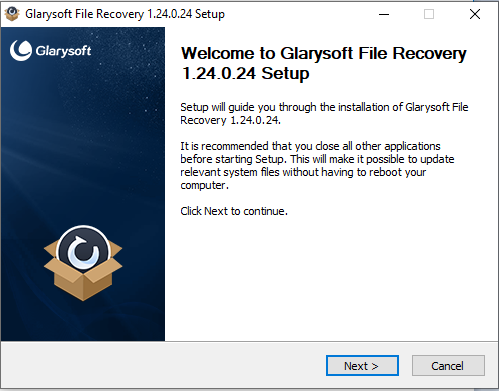
Download and Install Glarysoft File Recovery
Step 2. Launch the software and select the drive or storage device you want to scan for lost files. Click on the ‘Scan’ button to initiate the scanning process.
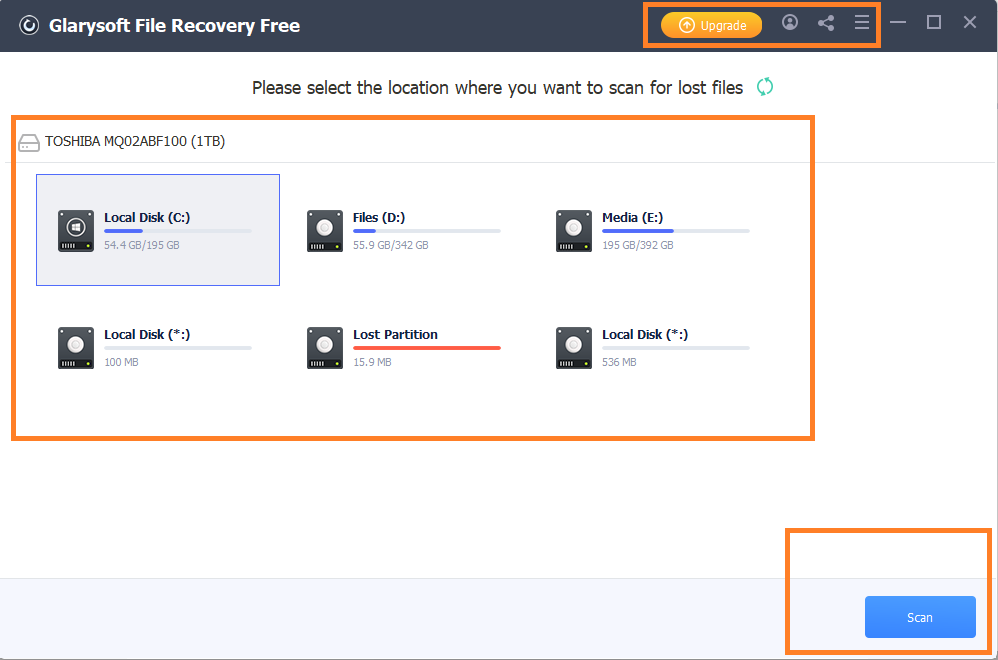
Click the Scan Button
Step 3. Once the scan is complete, browse through the list of recoverable files. Use the preview function to check the files and select the ones you wish to recover.
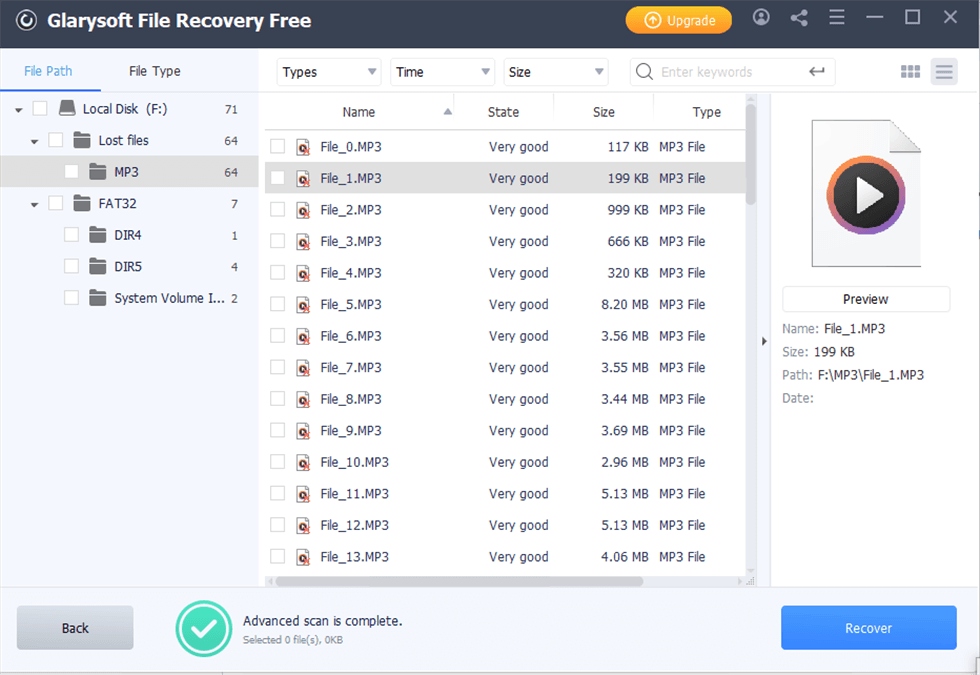
Advanced Scan Results
Step 4. Click on the ‘Recover’ button and choose a destination folder to save the recovered files.
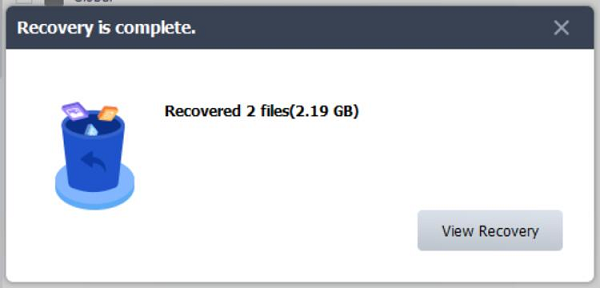
view recovered files
Method 2: Use Command Line Tools to Repair File System Errors
In Windows, you can use the chkdsk command to check and repair file system errors, which may restore some lost files. Here are the steps on how to use the chkdsk command:
1. Open the Command Prompt:
In Windows, press Win + R to open the Run window, type cmd and press Enter to open the Command Prompt window.
2. Run the chkdsk command:
In the Command Prompt window, type the following command and press Enter: chkdsk [drive]: /f /r
Where [drive] is the letter of the hard drive you want to check and repair. For example, if you want to check drive C, the command would be chkdsk C: /f /r.
The /f parameter is used to repair errors found.
The /r parameter is used to detect and recover physical errors on the hard drive during the scan.
3. Wait for check and repair:
The chkdsk command will start scanning and trying to repair file system errors on the hard disk. This process may take some time, depending on the size and speed of the hard disk and the number of problems found.
4. Check the recovered files:
After chkdsk is completed, the system will display the results of the repair. In some cases, the repair process may recover some files that were accidentally deleted or lost. These files are usually saved to the Found.xxx folder (xxx is a number).
Final Thought
In this article, we have explored ways to recover files from a formatted hard drive. Glary File Recovery is not only easy to use, but also has powerful file recovery capabilities that can deeply scan the hard drive and retrieve files after accidental deletion or formatting. When faced with data loss, remember to stop using the hard drive immediately and try to use a reliable tool to maximize the recovery of important files.
Product-related questions? Contact Our Support Team to Get Quick Solution >

